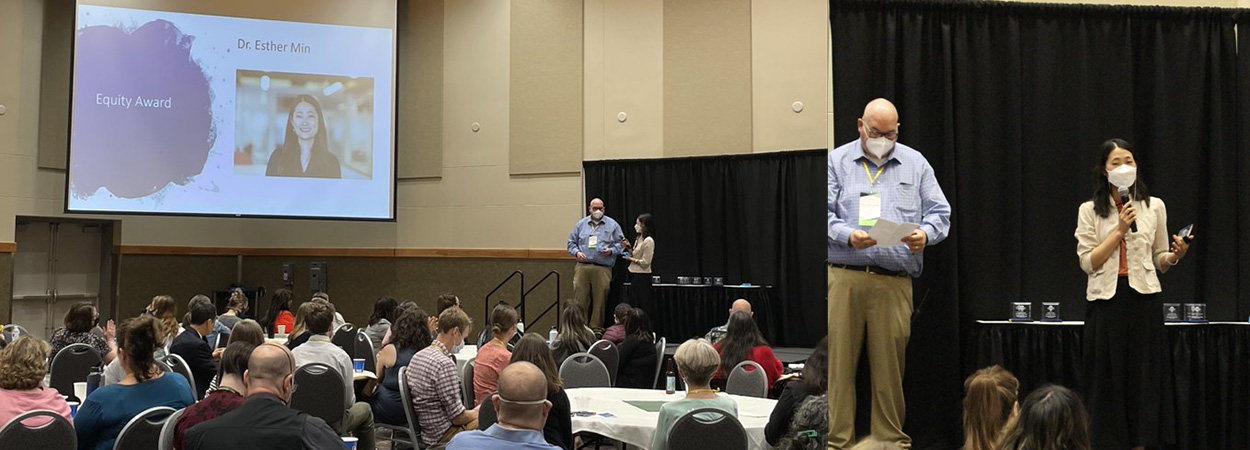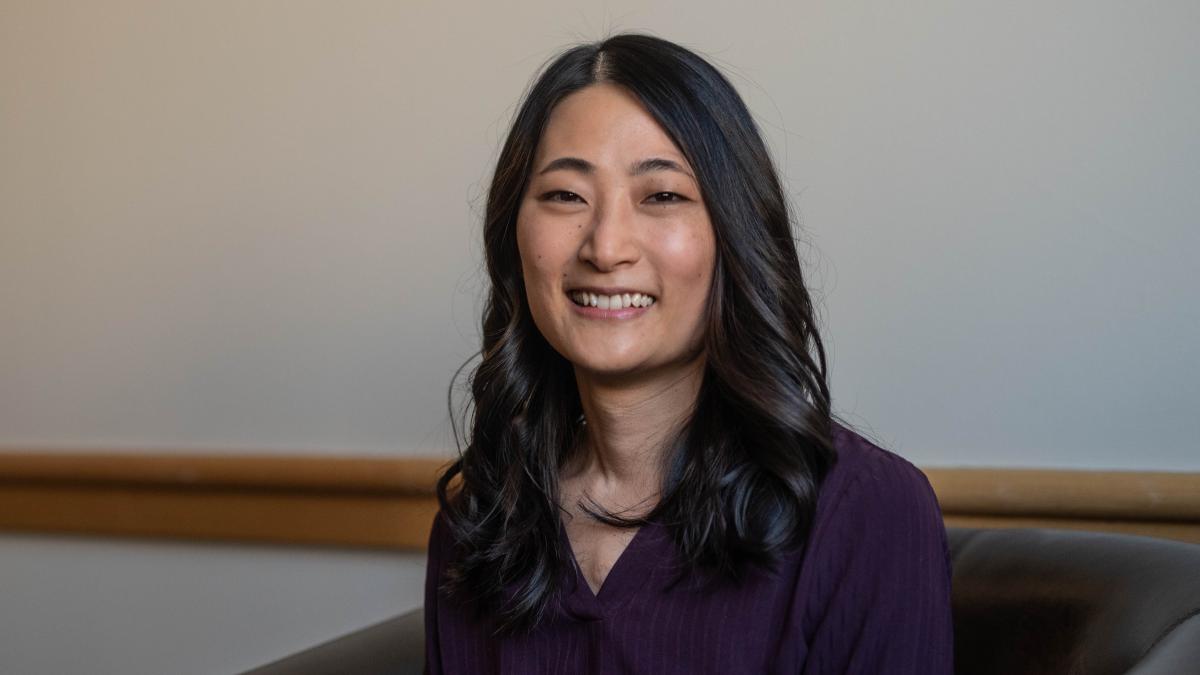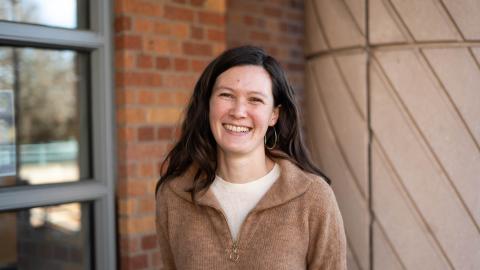For Esther Min, the most effective public health science starts with listening to the needs of communities.
While earning her PhD in Environmental and Occupational Hygiene at the UW Department of Environmental & Occupational Health Sciences (DEOHS), Min partnered with communities across Washington state on environmental justice projects ranging from easing pediatric asthma to mapping environmental health disparities.
Prompted by community requests for a tool to understand how multiple, overlapping socioeconomic and environmental stressors influence health, she and partners created the open-access, interactive Washington Environmental Health Disparities Map to track communities’ exposure to diverse risk factors across the state.
Now a clinical assistant professor in DEOHS and director for environmental health research partnerships for the nonprofit coalition Front and Centered, Min was recently awarded the Health Equity Award from the Washington State Public Health Association for her efforts toward championing equity and undoing racism.
“She is the ideal balance of smart bench scientist, community-based activist and advocate, teacher and applied practitioner,” said Stephanie Farquhar, associate dean of the UW School of Public Health, who nominated Min for the award. “Her ability to translate environmental health and risk data for any number of community audiences has made her an effective advocate.”

A coalition builder
Min jokes that she has “a thing for coalitions.” During her MPH studies at Touro University California, she worked with an environmental justice coalition that helped pass the Human Right to Water bill in California in 2012.
“Seeing people in different communities coming together and thinking about water justice—that got me thinking that I need more tools to see the change I want to see,” she said.
It led her to pursue her PhD and ultimately join forces with Front and Centered, a coalition that partners with communities of color across Washington state on environmental justice issues.
In her synergistic roles at UW and Front and Centered, Min has spearheaded projects documenting how community organizations filled critical gaps in emergency relief during the pandemic.
She has also helped update the Washington State Environmental Health Disparities Map to show not only communities’ exposure to environmental hazards, but also vulnerabilities that might make them less resilient to these challenges. The map is now a guiding framework for Washington’s Healthy Environment for All (HEAL) act.
Through her work with Northwest Pediatric Environmental Health Specialty Unit (PEHSU), she leads efforts prioritizing children’s health, including culturally inclusive comics about safer cleaning habits for families.
A pivotal moment for environmental justice
In accepting the award, Min acknowledged the broad coalition she is part of and the community organizations they work with.
“It’s humbling, and a reminder of how much more work we have to do,” she said, but she also emphasized the moment as a pivotal opportunity for change.
She credits the hard work of communities of color, as well as the impact of COVID, in bringing greater attention and funding to environmental justice issues.
Creating change together
Throughout her work, Min is a “connector” who focuses on creating meaningful relationships to hear the needs of communities, and then building partnerships to address them.
“It’s inspiring and humbling to be in the same room with community organizers and advocacy groups, thinking about the changes they want to see,” she said. “We can think about ways to create change together.”
In the years ahead, she hopes to continue advancing antiracism and health equity goals through teaching and collaboration, including shepherding a new environmental climate justice research fellowship at Front and Centered. The inaugural fellow is DEOHS MPH alum Juliette Randazza.
“I’m finding myself thriving and enjoying the company of other people who are passionate about social and environmental justice, and who are trying to get at the root causes of it,” Min said.




